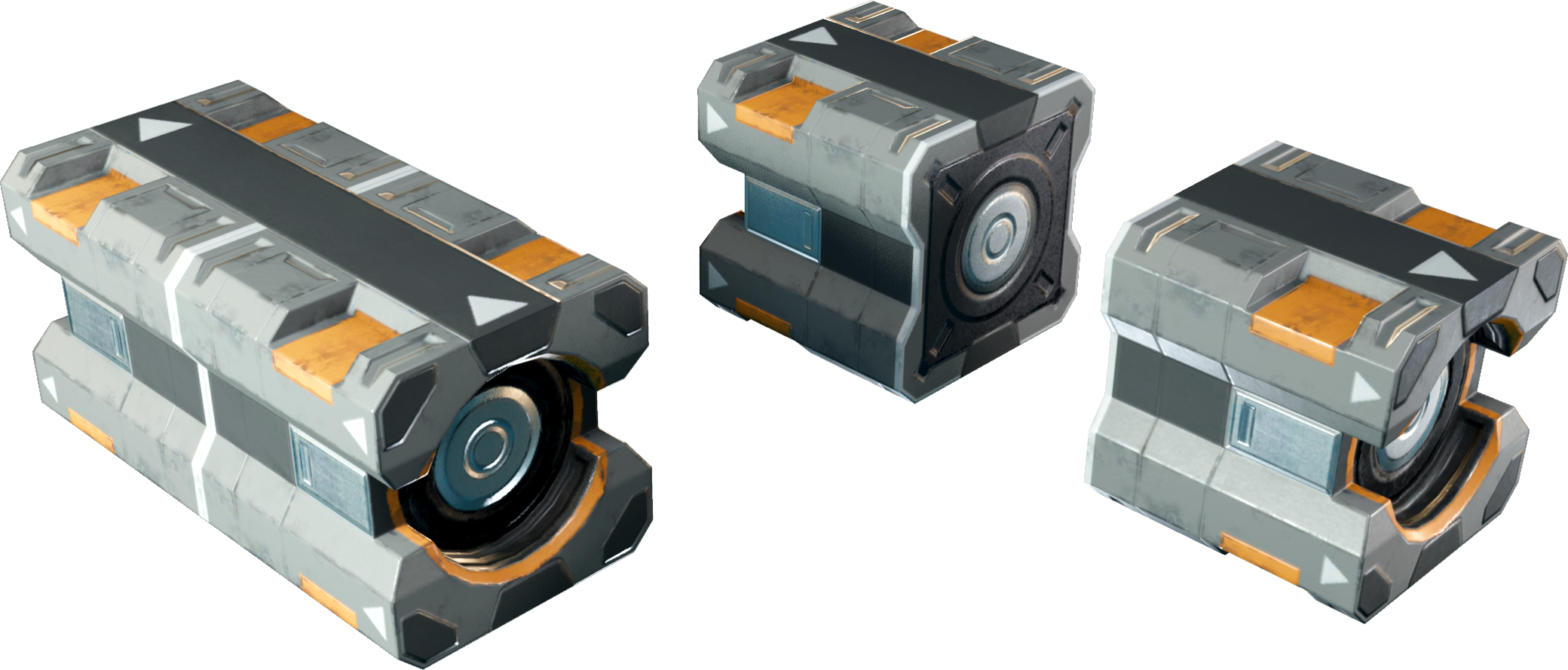Difference between revisions of "Network relay"
Jump to navigation
Jump to search
m |
|||
| (3 intermediate revisions by 2 users not shown) | |||
| Line 1: | Line 1: | ||
{{Otherlang2 | {{Otherlang2 | ||
|fr=Network_relay | |fr=Network_relay/fr | ||
|de=Network_relay:de | |de=Network_relay:de | ||
|zh-cn=单向网络中继器 | |zh-cn=单向网络中继器 | ||
| Line 17: | Line 17: | ||
|type= | |type= | ||
|function= | |function= | ||
|size=48×24×24 cm | |size=48×24×24 cm | ||
|mass=244.17 | |mass=244.17 | ||
| Line 81: | Line 81: | ||
** One end of the relay acts as the "input" connection | ** One end of the relay acts as the "input" connection | ||
** The other end acts as the "output" connection | ** The other end acts as the "output" connection | ||
* When the relay is powered, changes made to device fields connected to the input propagate will apply to all similarly named device fields that are connected to relay output | ** The input / output direction is shown through triangles pointing towards the output side | ||
* When the relay is powered, changes made to device fields connected to the input propagate / will apply to all similarly named device fields that are connected to relay output | |||
** Values between networks are not automatically synchronized | ** Values between networks are not automatically synchronized | ||
*** This means that connected networks may contain different values for similarly named device fields | *** This means that connected networks may contain different values for similarly named device fields | ||
* A Network Relay can also not propagate data, by setting MasterIsEnabled or IsEnabled to 0 | |||
** MasterIsEnabled can only be influenced from the Input side | |||
** IsEnabled can be influenced from the input side if it is propagating data. If it is 0, it can only be influenced from the Output side. | |||
'''NOTE:''' the Network relay can only function, if there is no open connection between the separate [[Data networks|data networks]], like a different network relay or a direct cable connection. | |||
* Use in conjunction with [[Memory relay|memory relays]] to transfer power and select data | |||
== Device fields == | == Device fields == | ||
Latest revision as of 22:34, 20 September 2024
Network relay
Size 48×24×24 cm
Mass 244.17 kg
Volume 24.54 kv
Corrosion resistance 440
Primary material Bastium
Input / Output
Sockets 2
Composition
The network relay is a device used to separate a network within a ship or station into multiple partially separate sub-networks. Separate sub-networks allow one-way broadcasting of variable changes between them, and enable the creation of modular YOLOL systems.
Basic information
- Network Relays are connected to two separate data networks via cable sockets at both ends of the device
- One end of the relay acts as the "input" connection
- The other end acts as the "output" connection
- The input / output direction is shown through triangles pointing towards the output side
- When the relay is powered, changes made to device fields connected to the input propagate / will apply to all similarly named device fields that are connected to relay output
- Values between networks are not automatically synchronized
- This means that connected networks may contain different values for similarly named device fields
- Values between networks are not automatically synchronized
- A Network Relay can also not propagate data, by setting MasterIsEnabled or IsEnabled to 0
- MasterIsEnabled can only be influenced from the Input side
- IsEnabled can be influenced from the input side if it is propagating data. If it is 0, it can only be influenced from the Output side.
NOTE: the Network relay can only function, if there is no open connection between the separate data networks, like a different network relay or a direct cable connection.
- Use in conjunction with memory relays to transfer power and select data
Device fields
| YOLOL field | description | range |
|---|---|---|
| IsMasterEnabled | On / Off (Input side) | 0 / 1 |
| IsEnabled | On / Off (Output side) | 0 / 1 |
To learn more about how to use fields, consult these wiki pages:
